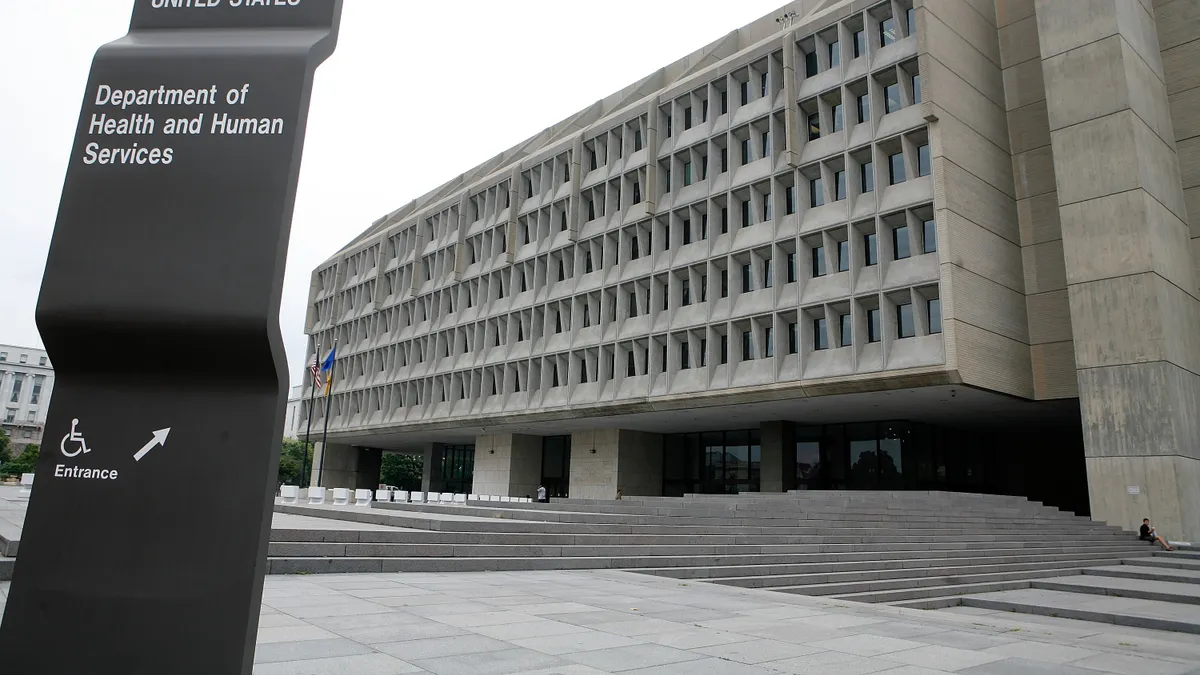Dive Brief:
-
CMS has delayed implementation of its contentious breakthrough payment rule until December 15 depriving the medtech industry, at least for now, of a policy once hailed as a "significant" tailwind.
-
The Medicare Coverage of Innovative Technology initiative would give breakthrough devices Medicare reimbursement automatically on the day they are approved or cleared by FDA.
-
Medtech manufacturers pushed for MCIT but high-profile detractors such as health insurance trade group AHIP as well as some doctor groups drove CMS to delay implementation. The agency said it shares concerns that MCIT "could be problematic in ensuring these devices are demonstrating value and do not have additional risks for Medicare beneficiaries."
Dive Insight:
MCIT was part of a batch of changes proposed in the final days of the Trump administration temporarily put on hold when President Joe Biden took office. That initial 60-day delay reset the start date to May 15. However, as the date neared, criticism flared and analysts at Cowen predicted CMS would again delay the rule to address the concerns.
The second, longer delay to the implementation of MCIT comes after CMS reviewed feedback on the draft plans. CMS took the action after concluding it does not believe "it is in the best interest of Medicare beneficiaries" for the rule to take effect on May 15 and citing multiple shortcomings of MCIT to make its case.
"Under the current rule, there [is] no requirement for evidence that MCIT devices will specifically benefit the Medicare target population. Additionally, the final rule takes away tools the CMS has to deny coverage when it becomes apparent that a particular device can be harmful to the Medicare population. If the rule goes into effect, and a device is later found to be harmful to Medicare recipients is approved under the MCIT pathway, CMS would be limited in the actions it can take to withdraw or modify coverage to protect beneficiaries," the agency wrote.
CMS provided further details of its concerns in responses to the criticism during the public consultation. The agency said it shares concerns that guaranteeing coverage for devices, even if their developers have no evidence in the Medicare population, "could be problematic in ensuring these devices are demonstrating value and do not have additional risks for Medicare beneficiaries."
The delay will enable CMS "to address the evidentiary concerns raised by stakeholders and consider how to better balance the needs of all stakeholders and beneficiaries in particular," the agency wrote. Given that stated goal, it seems likely that the rule that emerges from the revision process will raise the evidence requirements or impose postmarket requirements to prevent CMS from paying for devices that may not be safe and effective for Medicare beneficiaries.
CMS' action is a negative for the near-term commercial prospects of some medtech companies. In January, analysts at J.P. Morgan hailed MCIT as "a significant commercial tailwind" for companies such as Abbott, Johnson & Johnson and Medtronic.
Cowen analysts acknowledged the delay as a blow but attempted a positive spin.
"Although the delay is a disappointment for the med tech industry, the silver lining is that the policy was not withdrawn. The implementation delay could give CMS time to address some of the concerns, which may or may not involve the agency reissuing a proposed rule. If delayed long enough, MCIT could also be addressed in the next iteration of the 21st Century Cures Act (Cures 2.0) or the reauthorization of FDA user fees in 2022," the analysts wrote.
Mark Leahey, CEO of the Medical Device Manufacturers Association, said in an emailed statement that MDMA is disappointed that CMS decided to continue to delay the implementation of the MCIT final rule.
Leahey contends that MCIT has strong bipartisan support in Congress and MDMA will continue to work with CMS to implement the final rule to "help ensure that Medicare beneficiaries get timely access to new medical procedures and therapies."













